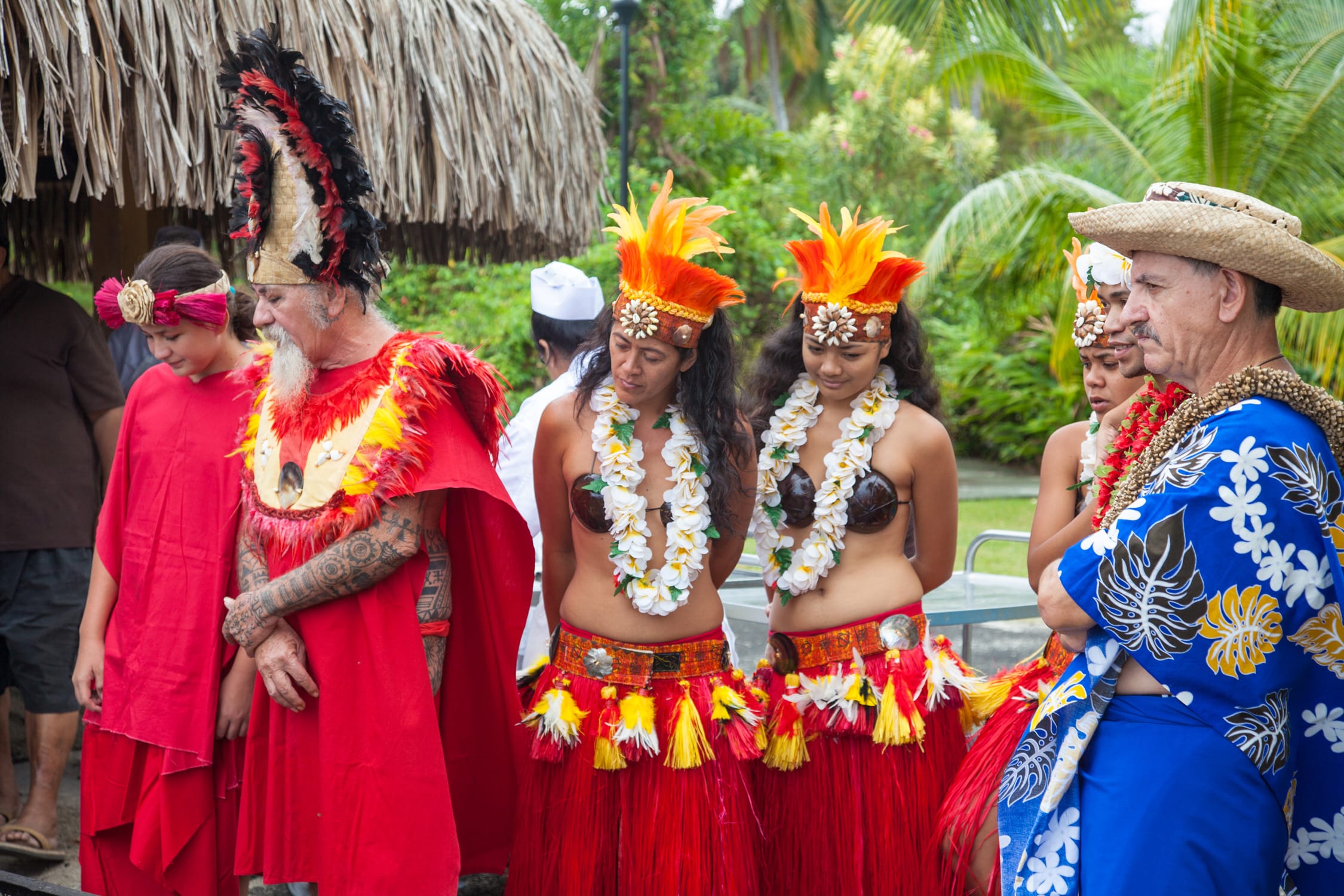Polynesian culture is rich in age-old traditions that still persist today, offering a fascinating and timeless universe. Made up of a mosaic of islands and archipelagos located in the Pacific Ocean, French Polynesia is a unique territory where paradisiacal landscapes, exceptional biodiversity and a very rich intangible cultural heritage rub shoulders. This article offers a journey to the heart of Polynesian culture and traditions, to better understand and appreciate this precious heritage.
The birth of Polynesian culture
Polynesian culture has its origins in the early Austronesian migrations from Southeast Asia, which populated the Pacific Islands more than 3,000 years ago. Over time, these first inhabitants developed specific skills and beliefs, which shaped the culture and traditions of the Polynesian peoples we know today.
Among the foundations of Polynesian culture, we find:
– The importance of nature and the sea: Polynesians maintain a close and sacred relationship with their environment, which provides them with food, means of transport and spiritual well-being.
– The importance of family and community: family and social ties are at the heart of Polynesian life, and traditions strive to strengthen and maintain them.
– The importance of rites and ceremonies: Polynesians attach great value to the rituals that punctuate their lives, and which are the expression of their spirituality and their cultural identity.
Polynesian traditional arts and crafts
The sculpture on wood and stone is one of the most emblematic art forms of Polynesian culture, inherited from pre-European times. Artisans create objects of great beauty and fine detail, often representing deities, legends or protective symbols. The tikis, these statue-idols with human features and stylized shapes, are undoubtedly the most famous works of this ancestral art.
Basketry is another traditional Polynesian know-how that has been perpetuated for centuries. Polynesians weave plant fibers such as pandanus, mother-of-pearl, bamboo or coconut fiber, to make baskets, hats, bags, tapas, etc. Geometric patterns and weaving techniques vary from island to island, and reflect their cultural diversity.
The tattoo is an age-old practice that is of great cultural and symbolic importance in Polynesia. Worn visibly and permanently on the body, it expresses the identity, belonging, personal history and spirituality of its wearer. The Polynesian tattoo heritage can be found today in the designs and techniques used by tattoo artists around the world.
Polynesian dances and music
In Polynesian culture, music and dance are inseparable and are present in all celebrations, religious holidays and social events. These arts form a universal language which makes it possible to tell stories, legends, to express emotions and feelings.
Among the traditional Polynesian dances, we distinguish:
– The tamure, originally from Tahiti, which is characterized by a fast, sustained and sensual rhythm.
– The ‘ote’a, which is a warrior dance reserved for men, accompanied by percussion.
– The aparima, which is a narrative and graceful dance, where the dancers tell a story through their movements.
Polynesian music mainly uses traditional instruments, such as the toere (hollow wooden percussion), the pahu (ceremonial drum), the ukulele (stringed instrument) and various conches and shells.
Polynesian beliefs and rituals
Religion and ancestral beliefs occupy an important place in the daily life of Polynesians. Their myths and legends, transmitted orally from generation to generation, are a source of wisdom and inspiration.
In Polynesian culture, there are many deities and spirits that populate the universe. Among the most venerated gods, we can cite Oro, god of war and the sun, Hina, goddess of the moon and fertility, or Ta’aroa, the creator god.
THE rituals and ceremonies are key moments of social and spiritual life in Polynesia. They mark the passage of time, birth, marriage, death, accession to social rank, harvest, fishing, etc. These events are an opportunity to get together, to share moments of joy and meditation, and to perpetuate ancestral traditions.
Conclusion
Polynesian culture and traditions are the reflection of a thousand-year-old history and heritage, which are expressed and transmitted through arts, beliefs, rituals and social ties. They bear witness to the richness and diversity of this island people, who knew how to preserve and enhance their unique heritage in the face of external influences.
By becoming familiar with Polynesian culture and traditions, we discover a bewitching and authentic universe, which invites us to immerse ourselves in the serenity and beauty of these dream islands. The Polynesians offer us a precious example of respect for nature, preservation of their cultural identity and solidarity, which we should all be inspired to follow.


